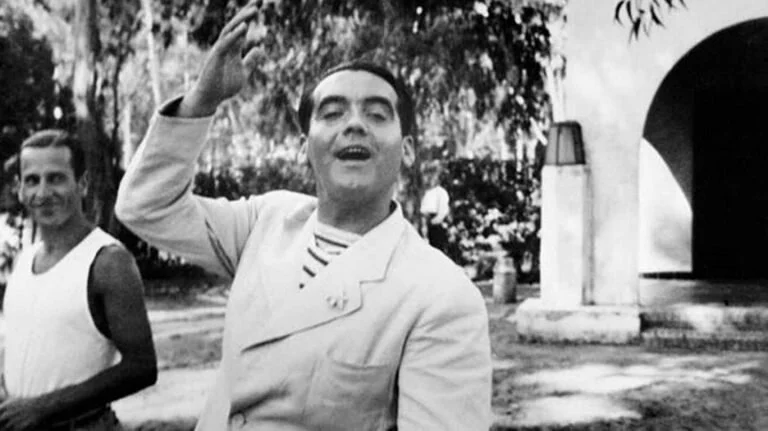Half a bread and a book
In 1931, the Spanish poet Federico García Lorca made such a proud and passionate speech at the inauguration of his village’s library that always hit me hard in my soul, even though I did not live in nineteen-thirties and I was not on Fuente Vaqueros that day.
“If I were hungry and helpless in the street, I would not ask for one bread. I would ask for half a bread and a book.”
I always wonder why a starving human being would prefer a book over food.… but poets see things that we, the common people, can’t see. Maybe that’s why they were always so feared and so hated by dictators. Five years after Lorca delivered this beautiful speech, he was killed.
Lorca could not imagine that, almost 30 years after his death, the cold war research would give rise to something as fascinating as Alexandria Library, and that we today are calling: The Internet.
Alexandria Library is the utopian human dream to have gathered in a single place and in a single space, all the knowledge of all times and of the whole world.
One thing I am sure. Lorca would be fascinated by the learning opportunities that the Internet created. Lorca could not imagine that his excitement when he entered a library is the same excitement we feel today when we start to search something on Google.
Lorca would love to know that he could enter Alexandria Library whenever he wanted, without having to be in Egypt, at any time of the day or night. Who would imagine that?
Lorca would never imagine that Berners-Lee, the scientist that design the basic Internet concepts, made all the drawings inspired in the image of physical libraries, because libraries are the most wonderful place, we humans know that has this fluid and accessible knowledge.
Yes… The Internet was inspired in libraries!
That idea of wondering and going around and around corridors trying to find information, stories, answers that can fulfil our never-ending curiosity. Lorca could never imagine that the Internet page codification was inspired in the way we codify book’s in the library shelfs and even the hypertext rules and protocols used to program digital search engines were inspired in those things we say to a librarian when we want to find a specific book. Who would see that? Not even a poet…
Let's return to Fuente Vaqueros a couple of minutes more.
Why a book? Instead of a half a bread? Why libraries? Why learning? Why education?
The answer today is the same it was in 1931. To raise really free-thinking humans, able to understand human values like justice, freedom, democracy, love, honesty, dignity, compassion, courage, friendship, loyalty, respect, generosity, kindness. All those “only human things”, that Charles Darwin considered the secret that allowed us, the fragile humans, to go against the harsh laws of natural selection and survive.
In short, to raise people that “also know how to enjoy all the fruits of the human spirit, because the contrary would convert them into machines”, as Lorca said so well that day. Lorca would never imagine how desperate we are these days not to become machines.
To achieve this goal, we must allow all human beings in the world, regardless of who they are and where they are, to freely access the Alexandria Library, whenever they wish to learn something, whether by day or by night.
If the Fuente Vaqueros’ library opening had taken place in October 2021, Federico Garcia Lorca would most likely say:
“If I were hungry and helpless in the street, I would not ask for one bread. I would ask for half a bread, a book and Internet access.”


